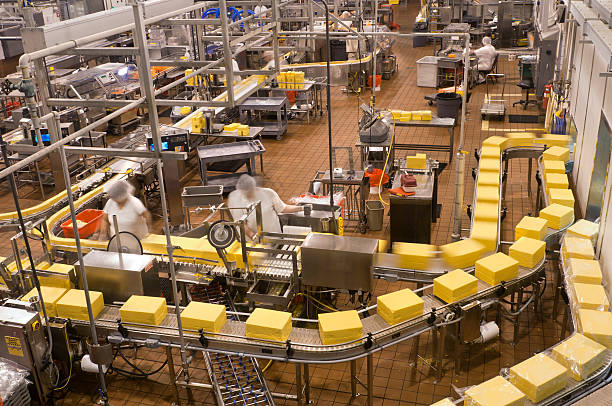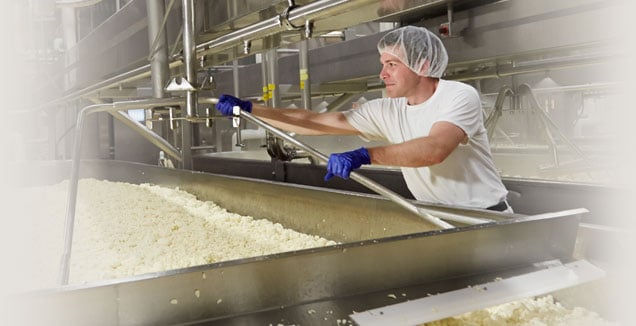Order Cheese for Sale Online Melbourne's Trusted Cheese Makers
Order Cheese for Sale Online Melbourne's Trusted Cheese Makers
Blog Article
An Extensive Take A Look At Cheese Production: Active Ingredients, Approaches, and the Future of Artisan Cheeses
The intricate procedure of cheese production is a fascinating merging of art and scientific research, where high-quality milk, rennet, and specific bacterial societies function as foundational components. Typical methods, such as salting and aging, are matched by modern technologies that respond to evolving consumer choices. As the sector significantly prioritizes sustainability and openness, the future of artisan cheeses promises to show both heritage and progress. Comprehending the subtleties of these methods raises engaging questions regarding the instructions of cheese production and its effects for quality and authenticity. What exists ahead in this developing landscape?
Key Ingredients in Cheese Production
A selection of important ingredients play a crucial function in cheese production, each adding to the end product's taste, structure, and character. The key ingredient in cheese is milk, which can come from numerous sources, consisting of cows, goats, and sheep - cheese store melbourne. The kind of milk utilized substantially affects celebrity's preference and consistency; for instance, cow's milk generally yields creamier cheeses, while goat's milk frequently creates tangy varieties
One more crucial component is rennet, an enzyme utilized to curdle the milk, separating it into curds and whey. The resource of rennet can be animal, veggie, or microbial, each passing on unique attributes to the cheese.
Salt not only improves the flavor yet also acts as a chemical, inhibiting the development of unfavorable germs. Furthermore, various flavoring agents, such as natural herbs, spices, or even smoked timber, can be included to create special artisanal cheeses. With each other, these components form the foundation of cheese manufacturing, establishing the phase for varied and rich cheese selections.
Standard Cheese-Making Methods
Using conventional cheese-making techniques, craftsmens all over the world preserve classic approaches that have been passed down with generations. These techniques commonly emphasize making use of premium, in your area sourced milk, which is main to the distinct flavors and appearances of artisanal cheeses. The procedure usually starts with the cautious heating of milk, followed by the addition of societies and rennet to promote coagulation.
As soon as the curds create, they are reduced, permitting whey to drain pipes, an essential action that influences moisture content and structure. Salting is a vital facet of this process, enhancing flavor while also acting as a preservative.
Aging, or affinage, is one more critical component, throughout which cheeses establish their characteristic fragrances and tastes. Artisans might utilize certain maturing atmospheres, making use of moisture and temperature controls to refine the cheese's account. The commitment to these standard methods not just supports neighborhood economic situations but additionally contributes to the rich variety of cheese ranges located around the world, celebrating cultural heritage and artisanal workmanship.
Modern Technologies in Cheese Production
Exactly how have technological developments changed cheese production in current years? The assimilation of modern innovation has actually revolutionized both the efficiency and top quality of cheese manufacturing.
In addition, advancements in microbiology have actually made it possible for cheesemakers to choose particular microbial cultures and enzymes, optimizing flavor accounts and improving life span. The use of sensing unit technology for keeping an eye on fermentation conditions has actually additionally come to be widespread, permitting for real-time modifications to preserve optimal environments for cheese aging.

These developments not only boost the top quality and sustainability of cheese manufacturing but additionally equip craftsmen manufacturers to keep traditional flavors while accepting contemporary effectiveness. As technology proceeds to progress, the future of cheese production looks appealing, mixing tradition with innovation.
The Function of Terroir in Cheese
In the world of cheese manufacturing, terroir plays a crucial duty in defining the distinct attributes of numerous cheeses. Terroir, a French term typically connected with red wine, encompasses the environmental variables that influence agricultural items, including soil structure, climate, and neighborhood flora and fauna. In cheese-making, the special qualities of the region where the milk is sourced can convey particular tastes and textures to the final product.
For example, the grazing problems of dairy products animals considerably influence the milk's make-up, influenced by the kinds of turfs and herbs readily available in a certain locale. This varies not just between nations yet likewise in between areas within the same nation. Additionally, the microbial areas present in the environment add to the fermentation Continue processes, causing varied accounts in taste and fragrance.
Cheeses such as Roquefort, Parmigiano-Reggiano, and Cheddar exhibit how terroir can shape their identities, making them unique and commonly safeguarded by geographical indicators. As manufacturers progressively identify the importance of terroir, there is a growing emphasis on sourcing neighborhood active ingredients and keeping conventional practices, making sure that each cheese genuinely reflects its beginning.

Future Patterns in Artisan Cheeses
A noteworthy shift is occurring in the artisan cheese sector, driven by progressing consumer choices and technological advancements. Progressively, consumers are inclining one-of-a-kind, top notch items that emphasize both sustainability and neighborhood sourcing - cheese makers melbourne. This pattern is prompting artisan cheesemakers to introduce, concentrating on small-batch manufacturing and using standard strategies while integrating modern-day innovation to enhance high quality and security
In addition, there is an expanding rate of interest in plant-based and alternate milk items, pushing conventional cheesemakers to discover brand-new methods, such as cashew or almond-based cheeses. This shift not only accommodates dietary restrictions yet also lines up with ecological concerns relating to animal agriculture.
Additionally, openness in sourcing and production processes is coming to be vital. Consumers are extra educated and demand traceability, prompting manufacturers to embrace clearer labeling techniques and participate in narration that highlights their methods and worths.
Verdict
To conclude, the complex procedure of cheese manufacturing combines conventional techniques with contemporary advancements, resulting in a diverse variety of flavors and textures. site here The focus on premium components and the influence of terroir highlight the artistry associated with cheese manufacturing. As the market advances, an emphasis on sustainability and openness will likely shape the future of artisan cheeses, satisfying a significantly critical customer base that values authenticity and craftsmanship in dairy products.
Report this page